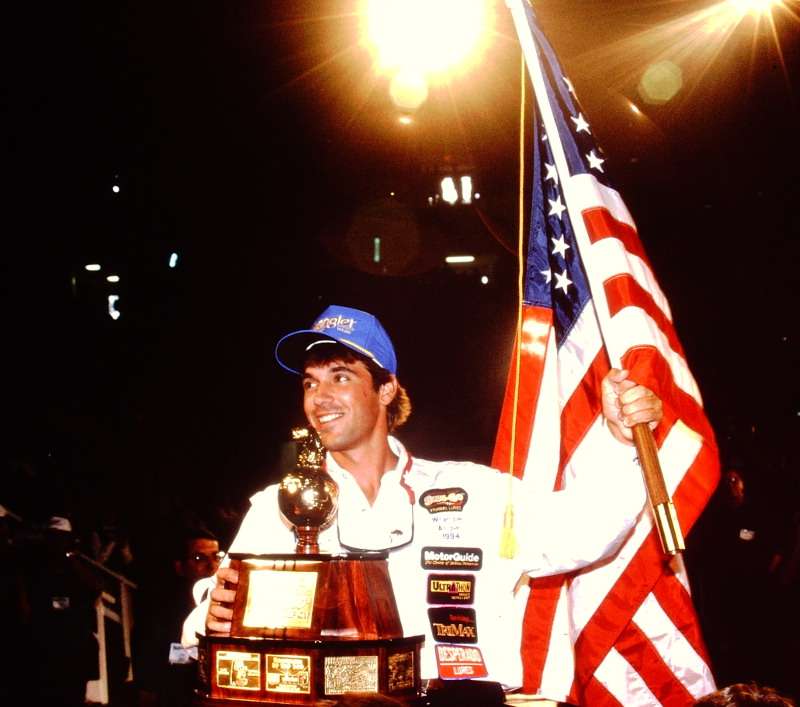
Take any drive down any interstate, and you’ll see wreaths, crosses and Drive Safely signs, marking a spot where some person — or group of people — of any age, race or gender have met an unexpected end.
It’s all tragic. And it happens multiple times every day that some young person in the prime of his or her life is snuffed out, unceremoniously. Often gruesomely.
So why pay so much attention to this one person?
It’s not that the others don’t deserve as much attention. It’s more like when Buddy Holly or James Dean died. They had fans, waiting for their next movie or album, waiting to see what else they had in them. Waiting, because they knew they had potential.
Bryan Kerchal had potential. He had already accomplished the unbelievable. People wanted to see if he was the real deal, if his skills would hold up against the competition — or if he was a fluke.
What he could have become
We didn’t get to see what he could have become.
Had Kerchal lived, he would be around the same age as some of the stars of the sport: Kevin VanDam, Aaron Martens and Mike Iaconelli. Kerchal accomplished more than those anglers had by age 23, but could he have had a career that’s as successful as they’ve had over the last 20 years?
“I think he would have been Angler of the Year several times, after he added some of the book knowledge to his natural talent,” said Ed Cowan, who has qualified for the Bassmaster Classic twice through the B.A.S.S. Nation and who has fished with several of the top anglers in draw tournaments.
“I think he would have been among the 20 top anglers of all time,” said Cowan. “He had the talent and the passion.”
Kerchal’s fishing partner Chris Mann says the same.
“I feel like Bryan had the drive Kevin VanDam has,” said Mann. “It was just more subtle, and presented itself differently. Unfortunately, this was not completely unleashed upon the bass fishing world. Had Bryan had the chance to continue, I think he would have continued his amazing success and gotten as famous as these guys. He would have been an awesome promoter of the sport like they are as well. It hurts to think about it a lot, but if I consider it briefly, it is inspiring to say the least.”
It will forever be a mystery what Kerchal’s true talent was, if he really had what it took to be successful as a pro.
One thing is certain: He would not have maintained the trajectory of achievement he was on. When Kerchal died, he was at the very top of his game. He would have had to win the next Classic and the next one and next one, with Angler of the Year titles mixed in, to have sustained the extremely upward course he had established.
“Very few anglers show sustained growth over a period of time,” said Ken Duke, former senior editor for Bassmaster Magazine and an expert in statistics for pro bass fishing.
“It’s impossible to say what he might have done in a full career,” Duke said. “He was on top at a very young age, but few anglers are able to sustain that kind of success. A lot of them slip or fold under the pressure of sponsor demands and being a champion. It would have been interesting to see how Kerchal would have handled it. We know he was very shy and often felt uncomfortable being the center of attention. Could he have overcome that and even learned to bask in the spotlight? Sometimes, that’s what it takes to be on top.”
 Everything’s already been written
Everything’s already been written
In Ray Kerchal’s bookcases, the white binders hold all the clips of articles written about Bryan Kerchal as an up-and-coming young angler and about his Classic win.
The black binders mark all the clips of articles published Dec. 14, 1994, and after — ones that reported on “the late” Bryan Kerchal.
Ray and Ronnie Kerchal are proud parents. They kept everything that touted the accomplishments of their two children. Ray, especially, is a meticulous record-keeper, and he has in his possession every memento imaginable of Bryan — including the layout of the cabin of the condemned plane, marking where Bryan was supposed to sit, and where he did sit.
It’s not unusual to keep everything that reminds you of someone you love once they’re gone. What is unusual is the bulk of material that was published about Bryan. In a very small industry, Bryan had a very large impact.
“I’m glad to know so many people remember him,” said Ronnie, who still bears the countenance of a very proud mom.
“People still call me with stories about Bryan that I’ve never heard before,” said Ray.
But so much love and support comes with another cost — never being able to get away from the pain.
“When other parents lose children, there comes a point where they have a retreat,” said Ronnie. “We never got a retreat.”
Much of that evolved from Ray and Ronnie’s passion to keep Bryan’s memory alive through the fishing camps and the memorial fund.
But it was taxing at times, such as when ESPN did hours of video interviews with Ray and Ronnie separately, and several others who were close to him, for a tribute to Bryan several years ago. As soon as the wounds begin to heal, someone comes and picks at the scab.
When I arrived at the Kerchals’ home in October — a picturesque dwelling in the heart of Georgia marked with a sign that says ‘Ray & Ronnie’s Retreat’ — Ray had a compelling question at the beginning of the interview.
“Why do you want to say something about him now, 20 years later? Everything’s already been written.”
The face of the Nation
Much has been written about Bryan. But a lot of it was published two decades ago in hard copy form, not accessible to the younger generation of anglers. Yet his story is timeless.
Brandon Palaniuk was only 7 when Bryan died and he didn’t even fish then. But in 2011, when he competed in his first Bassmaster Classic — hailing as a B.A.S.S. Nation angler, just like Bryan did — he called Ray and asked for a fish whistle. When he got on stage, he blew the whistle in honor of Bryan — and there was barely a dry eye in the house.
“It was a way to honor him and give thanks for what he did,” said Palaniuk. “He showed it was possible to win as a Nation guy. And from the time I joined my first club, he was the face of the B.A.S.S. Nation.”
For Mike Iaconelli, too, Bryan Kerchal was an inspiration.
“He was an average guy,” said Iaconelli, “but he was able to do this amazing thing. That was a huge inspiration.”
 Our guy
Our guy
Kerchal’s win continues to inspire others, and Don Corkran doesn’t see that changing.
“Twenty years from now, even, people in the B.A.S.S. Nation whose parents weren’t born when he won will still know his name.”
That is especially true in the Connecticut B.A.S.S. Nation.
“When he was taken, it was like a piece of all of us was taken,” said Sylvia Morris, president of the Connecticut B.A.S.S. Nation.
“He was special,” she continued. “He accomplished in his short lifetime what these other anglers cannot accomplish in 40 years. So for us in Connecticut, the people he did meet will never forget him.”
“His is the classic Cinderella story,” said Ed Cowan. “He’s what everyone looks for in American sports — the underdog, the ‘our guy.’”
He was indeed “our guy.” He found a fishing rod at age 7 and fell in love with the tug on the end of the line. He pursued it endlessly until he could think of himself as doing nothing but fishing for a living. He ignored the naysayers. He went for broke. He went to a Classic and got humbled. He returned with a vengeance and earned the trophy.
And he died because of pilot error and a switched seat.
Put on this earth to break barriers
Everyone mentions how shy Bryan Kerchal was in the beginning — and how surprised they were at the change in him over the 2 1/2 years that he was climbing the ladder in the fishing world.
“We watched him blossom,” said Morris. “The transformation was just incredible.”
In 1992, Kerchal was almost paralyzed by the fear of walking up on stage with his fish in front of a couple dozen people.
On the last day of his life, Bryan Kerchal voluntarily gave an impromptu speech to 700 people at the Wrangler Employee Appreciation Day.
He was not expected to speak — he was only supposed to be there for the employees to meet and shake his hand.
But the man who would have sought a dark corner to sit quietly in just a couple of years prior bounded onto stage without a script, without obligation and without fear, thanking everyone at Wrangler for their support of him as a Classic champion.
Hours later, he was gone.
It seems as if he was put on this earth to break barriers. And by the time he broke the last one, his work here was done.
The legacy
What he left behind was a legacy of pursuing one’s dreams, and breaking through whatever obstacles were in one’s way. It’s a legacy that has manifested itself in people feeling inspired to get more kids fishing, and in people doing whatever it takes to make it as a pro angler.
It’s a legacy that’s more significant because he is gone, because losing a reigning Classic champ has never happened before, and because the people who loved him worked to keep his memory alive.
It’s a legacy that inspired Cowan to name his next son Bryan, one that inspired Chris Mann to keep Kerchal’s boat in his garage, meticulously cared for and barely used.
It’s a legacy that makes members of Bryan’s club still go to Taunton Lake, where Kerchal’s ashes were scattered, just to have coffee and be close to him.
It’s a legacy that we hope will live not just for the next 20 years as it has for the first 20, but one that will live in the minds and hearts of bass anglers for eternity.
“I’m going to connect with these fish, not dominate them. They’re beautiful. And the bigger they are, the more I like them.”
Bryan V. Kerchal


